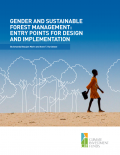
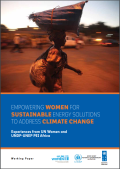
Africa has enormous potential for clean energy, given its ample resources of hydro, solar, wind and geothermal power. However, current highly centralized energy systems often benefit the rich and bypass the poor. On the other hand, decentralized renewable energy systems offer a great opportunity for women’s empowerment. As these are deployed at the local level, women are more likely to participate in related decision-making and be involved in the energy value chain.
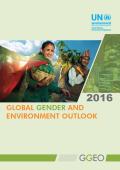
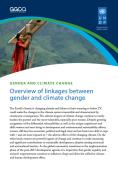
The Earth’s climate is changing already and failure to limit warming to below 2°C could make the changes in the climate system irreversible and characterized by cataclysmic consequences. The adverse impacts of climate change continue to overly burden the poorest and the most vulnerable, especially poor women. Despite growing recognition of the differential vulnerabilities as well as the unique experiences and skills women and men bring to development and environmental sustainability efforts, women still have less economic, political and legal clout and are hence less able to cope with – and are more exposed to – the adverse effects of the changing climate. On the other hand, women are powerful agents of change and continue to make increasing and significant contributions to sustainable development, despite existing structural and sociocultural barriers. As the global community transitions to the implementation phase of the post-2015 development agenda, it is imperative that gender equality and women’s empowerment continue to influence, shape and drive the collective climate and human development effort.
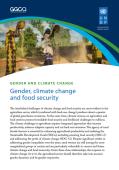
The interlinked challenges of climate change and food security are most evident in the agriculture sector, which (combined with land-use change) produces about a quarter of global greenhouse emissions. At the same time, climatic stresses on agriculture and food systems present formidable food security and livelihood challenges to millions. The climate challenge in agriculture requires integrated approaches that increase productivity, enhance adaptive capacity and cut back net emissions. The agency of rural female farmers is essential for enhancing agricultural productivity and realizing the Sustainable Development Goals (SDGs), including ensuring food security (SDG 2) and addressing the perils of climate change (SDG 13). Despite significant strides in addressing gender inequalities over the years, rural women are still among the most marginalized groups in society and are particularly vulnerable to current and future climate change and food insecurity. Given these close relationships, the response to climate change vis-à-vis the agricultural sector should therefore take into account gender dynamics and be gender-responsive.
